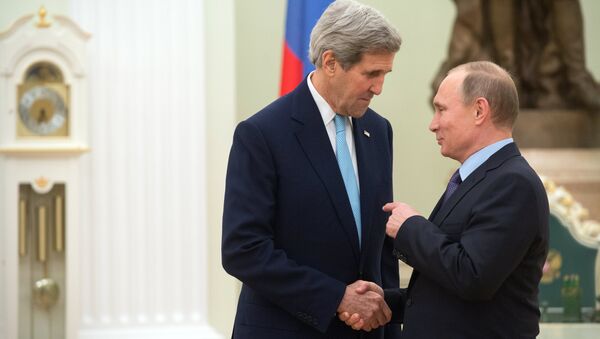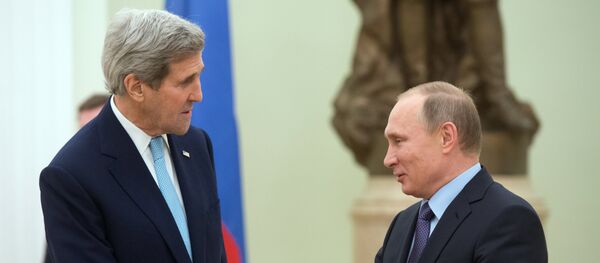The visiting US officials, headed by Secretary of State John Kerry, for the first time said that deposing Syrian President Bashar al-Assad is not a goal for the United States. In US media, the move was instead presented as Moscow running out of options on Syria, and not that its actions pushed forward the first negotiations over Syria in three years.
According to Sergei Oznobischev of the Institute for Strategic Studies and Analysis, the move, together with the negotiations, is an important shift for Russian-US relations.
"It appears to me that the West has begun to understand the thesis obvious to us, but not obvious for the United States: the sudden overthrow or removal of 'anti-democratic' regimes, as a whole does not bring the world peace and happiness," Oznobischev said.
According to the New York Times, while Russia's diplomatic standing has improved as a result of the Syrian operation, the lack of radical changes may also make Russia more willing to negotiate. Negotiations over Syria in Vienna began shortly after Russia began its operation to support Syrian army efforts against Daesh (also known as ISIL) and other terrorist groups.
While Russia has lost a competitive advantage from trade and financial links with the European Union, falling oil prices in the sector targeted by financial sanctions and the development of internal agricultural infrastructure may in the long term cause the EU to permanently lose Russia as a country for both exports and mutual benefit in oil exploration.
Determining which groups fighting in Syria are terrorists, as opposed to non-terrorist opposition fighters, remains an issue, according to Russian Academy of Sciences US and Canada institute head for military-political studies Vladimir Batyuk.
"It is clear that the United States have to join, which they are doing, to later participate in the post-war order in Syria, and to a certain extent, the Middle East. We may assume that this American policy direction is now being created," Batyuk said.
As both the US and Russia are unwilling to insert ground forces to change the balance of Syria's multi-vectored conflict, it may indeed be the case that both sides are pressuring each other to gain an edge in negotiations.



